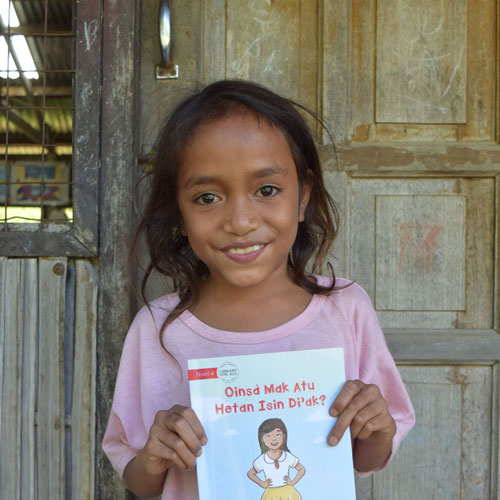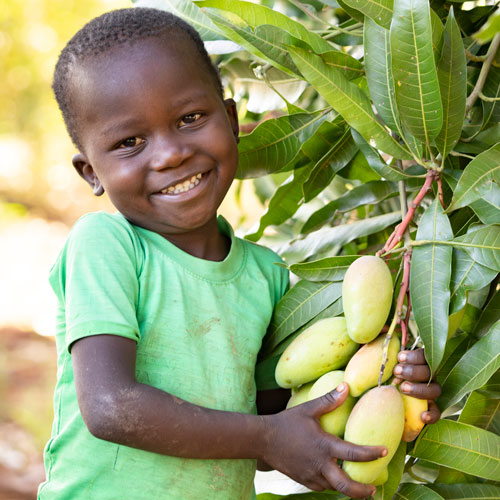Sydney, Australia, 25 November 2013: To mark the International Day for the Elimination of Violence Against Women, Australian aid organisations are drawing attention to the plight of women in Papua New Guinea (PNG). With one of the highest rates of violence against women, urgent assistance is needed so that work can continue to address this problem.
In a statement released by ChildFund Australia, Australian National Committee for UN Women and World Vision Australia, the organisations highlight that the situation has not improved for women in PNG in recent decades.
“A report published over 30 years ago by the PNG Law Reform Commission found that two out of every three women in PNG had experienced violence,” said Nigel Spence, CEO, ChildFund Australia. “A recent study conducted by ChildFund indicates there has been no improvement in these statistics with 86% of women surveyed reporting they had been beaten during pregnancy.”
The statement encourages Australians to give what they can to programs that are working to reduce violence both in the home and in public spaces. Many of these programs are funding innovative approaches to reducing the risks women face.
“We have increased the focus of our programming in PNG to help women safely participate in public life,” said Julie McKay, Executive Director of the Australian NC for UN Women. “We identified that markets were a high risk area and have worked with authorities to improve safety. This has included increasing police presence around markets, improving lighting, and providing mobile technology for cashless transactions.”
The statement also calls for the Australian and PNG Governments to step up their activities to address this issue. The PNG Government has taken positive steps to strengthen gender violence laws through the Family Protection Bill which criminalises acts of domestic violence and is providing better services to women through initiatives like the Family Sexual Violence Units at police stations around the country.
These changes are significant in combating this issue but the statement recognises that the PNG and Australian governments will need to increase their support if they truly want to put an end to violence against women.
“The Australian Government has been a strong and reliable partner in supporting World Vision’s programs that directly address issues of violence against women,” said Tim Costello, World Vision Australia chief executive. “While these initiatives have brought some relief, there is much work yet to be done before everyone, including men, understand the role they must play in keeping women and children safe.”
Appendices include:
- Joint statement calling for more to be done to end violence against women
- Background information on ChildFund, UN Women and World Vision programming in PNG
Joint statement calling for more action to end violence against women in PNG
It is nearly 30 years since a study by the Papua New Guinea (PNG) Law Reform Commission found that two out of every three women in PNG had experienced violence.[1] Subsequent studies have shown that the situation for women in PNG has not improved. In fact, rates of violence against women continue to rank amongst the highest in the world.
A recent study by ChildFund Australia[2] found that women are raped, killed and maimed on a shocking scale. The brutality is severe, often involving bush knives, axes, burning, spearing and even biting. It also found that women had limited options in responding to domestic violence.
While there have been some recent gains have been made – the Family Protection Bill was passed in September 2013, making domestic violence an offence under PNG law – these measures will only be effective if they are enforced and supported through community education and training programs focusing on gender equality, respect, conflict resolution, human rights and the legal system.
More needs to be done to protect women and to give them choices. The PNG Government needs to improve the support offered to women and children affected by violence and ensure law enforcement. Due to the lack of services, many women have no choice but to stay with violent men in order to feed themselves and their children. Prosecuting perpetrators is also difficult as police are reluctant to investigate instances and obtaining the documentation required by the court may be financially beyond the reach of affected women.
As a good neighbour, Australia needs to be a voice for the most vulnerable and Australians should not sit silently as women in nearby countries experience horrific violence. We are calling on all Australians to lend their voice to the plight of these women. We are asking them to give what they can to aid agencies who are addressing this problem. The ChildFund study highlighted that education programs are working and these need to be continued and expanded.
We are also urging the Australian Government to do more. A significant part of the Australian Government’s aid budget goes toward gender equality and women’s empowerment in the region. This must be maintained and increased, with more targeting of anti-violence initiatives. Increased funding could go towards efforts to ensure the PNG Government is enacting existing law. The Australian Government can lend its voice to advocacy efforts that are calling on the PNG Government to prioritise this issue.
It is clear this is an issue that needs urgent attention in order to bring lasting change at a national and local level for women and children who currently live in daily fear of violence.
[1] Ganster-Breidler, Margit. Gender-based Violence and the Impact on Women’s Health and Well-being in Papua New Guinea [online]. Contemporary PNG Studies, Vol. 13, Nov 2010: 17-30.
[2] ChildFund Australia and ChildFund PNG, 2013, Stop Violence Against Women and Children in Papua New Guinea.
Information on PNG programming
ChildFund Australia
ChildFund is working with 19 villages in the rural Rigo District to provide critical medical care and support services for women and children affected by violence, while also preventing violence by working with men and young people to change existing attitudes and behaviours. At the village level, influential community leaders are being trained to raise awareness of family and sexual violence in their communities, as well as provide counselling, advice and referrals. A school-based education program is also being implemented in primary and secondary schools to teach students about respectful relationships, gender equality and conflict resolution. Local health services including the district hospital are being strengthened, giving survivors of violence greater access to the specialised care they need. Where local services are unavailable, a voucher referral system covering transport and other costs will be introduced so that women and children can access specialised services in Port Moresby.
Australian National Committee for UN Women
UN Women NC Australia raises funds for UN Women’s work in the region. UN Women is working to accelerate gender equality in PNG through programs which aim to eliminate violence against women, ensure women’s economic security and provide women access to leadership and decision making opportunities. UN Women is making cities safer for women through the Safe Cities project – which has involved increasing the police presence at market places, mapping danger spots in the city and identifying barriers to women’s full participation in public life. Buses have been acknowledged as one of the most dangerous places for women and girls with 87% of women reporting that they have been sexually assaulted or harassed on a bus in the last 12 months. UN Women will be providing a bus service in 2014 for women and children to safely get them to work and school. UN Women has also completed the pilot phase of the Market’s Project, which has made the markets in Gerahu a safe place for women to sell fruit and fish. The markets now have a police presence, lighting, and roofing and technology is being used so that women need not carry cash, reducing the chance of robbery. Funds collected from market fees will be used to further develop the infrastructure of the market place.
World Vision
World Vision currently runs 25 projects in PNG and all programming incorporates gender issues into the design and implementation of our activities. Through our health, nutrition, and education programs we seek to promote dialogue between men and women and promote better outcomes for women and children. World Vision also runs a number of programs that address the issue of gender based violence directly. These programs focus on community based solutions such as improving local services available to victims and educating women and children on their legal rights. Our violence reduction programs also highlight the important role community leaders play in addressing this issue. We are working to skill community leaders so that they can recognise and challenge local cultural beliefs that lead to violence and also ensure they know how to respond appropriately when instances of violence are brought to their attention.
Notes to editors
The following spokespeople are available for comment:
- NSW: Nigel Spence, CEO, ChildFund Australia
- ACT: Julie McKay, Executive Director, Australian National Committee for UN Women
- VIC: Tim Costello, CEO, World Vision Australia








